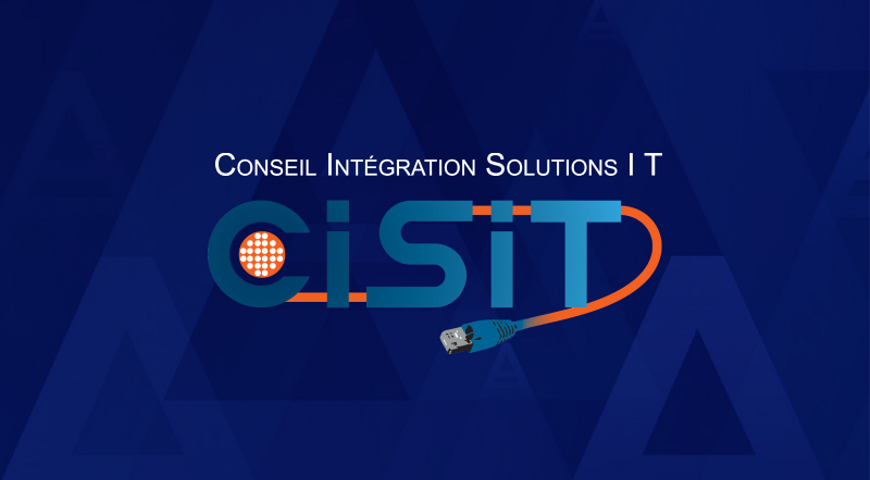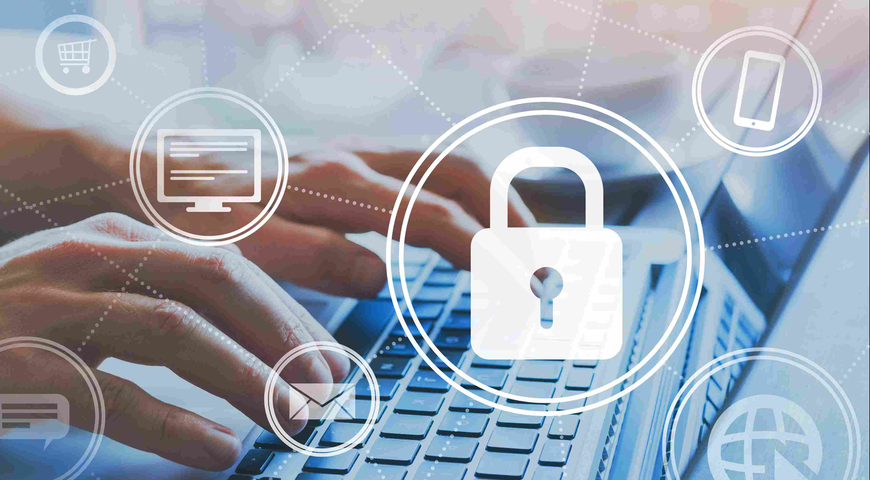The managed service provider (MSP) market is at a record high, and that growth shows no sign of slowing. The market is expected to reach a global value of 372.6 billion by 2028 at a CAGR of 6.2% for the forecast period. Of course, with this explosion of growth comes swarming competition; it's critical to differentiate your MSP business from your competitors. Fortunately, managed online backup services offer a simple, highly impactful way to stand out.
MSPs who make managed backup a core part of their service offerings are better equipped to meet the needs of their current and future customers. Moreover, a comprehensive backup offering can provide several benefits for MSPs to help expand brand recognition, customer base, customer satisfaction, and revenue.
This article will explore the nature of online backup, its advantages, and how you can implement it optimally in your MSP's service offerings.

What is a managed online backup service?
Online backup services (aka "cloud backup", "remote backup", or "backup-as-a-service (BaaS)") are an approach to off-site data storage where files, documents, folders, and entire storage drives are regularly backed up by a managed service provider. The MSP relies on a dedicated team and remote backup software to back client data to a secure cloud-based repository via an encrypted network connection. The managed service provider charges clients a flexible subscription fee based on network capacity and storage used, bandwidth, server volume, data recovery instances, and more.
The primary purpose of an online backup service provider is to protect critical company information (whether business or personal data) from all data breach risks, such as human error, hardware failure, natural disasters, or cyberattacks.
Instead of relying on a centralized, on-site backup server, online backup MSPs can connect client systems to public, private, or hybrid cloud storage and remotely manage the entire backup process. A managed online backup solution eliminates the worry over maintaining hard disks and tape drives at remote data centers, thus enabling immediate access to critical data whenever needed. Moreover, while the solution manages the backup processes, your IT team can focus on essential company projects.
Most managed cloud backup providers offer monthly or yearly subscriptions for a wide range of clients. While initially, this approach was used primarily by individual consumers and home offices, cloud backup solutions are nowadays used by SMBs and even large enterprises to back up various data formats and volumes. However, it's essential to mention that the largest enterprises will likely require a hybrid backup approach to protect all their data, including on-premises (local backups), off-site physical, and cloud storage services.
How does managed online backup work?
Online backups rely on a fast, reliable network connection to transfer data from a local device to the cloud. Users and companies can send specific files or the entirety of their HDD or SSD to online storage via this approach. Online backup services can also copy entire websites or platforms and store them securely on the cloud. Moreover, some managed service providers can integrate directly with collaboration platforms (e.g., GitHub, Google Workspace, Trello) to comprise and back up entire business accounts, including all associated data.
Typically, when a user initiates an online backup, the backup clients scan their devices and hard drives to comprise critical files, encrypt them, and transfer them to secure backup. Users can customize the backup frequency to suit their data-creation habits so no information is left unprotected. While this process can be done manually, partnering with an MSP can significantly improve the backup efficiency and enable swifter disaster recovery.
Choosing the right backup solution to suit a company's needs and preferences may take some time. However, after finding the best cloud backup service for a specific target business, setting up remote backup procedures is pretty straightforward. The proper MSP backup solution will enable clients to customize and manage backup and recovery operations via a centralized web console to tailor the initial backup to their data protection needs and preferred practices. Once customization is complete, the MSP will automatically create cloud backups of all changed or new data.
What are the benefits of Managed Online Backup
Aside from reducing the workload on the in-house IT team, the best cloud backup services can provide numerous benefits to MSP clients. Let's explore the primary ones below.
Sensitive data and application protection
Modern SMBs and enterprises must secure their business' and customers' data to meet IT compliance regulations, protect their brand's reputation, and ensure peace of mind for clients, employees, and stakeholders. In addition to regular, continuous backups, companies must safeguard operational data to ensure unhindered day-to-day processes; that can be challenging if the company isn't equipped with a complete set of compatible data protection features.
On the other hand, partnering with an MSP can handle all data security concerns by implementing multiple layers of top-tier information protection, such as end-to-end encryption, two-factor authentication, secure online storage, encrypted file-sharing features, and more. A well-rounded data protection implementation can increase account security, protect on-premises and mobile devices, and grant complete control over your backup management process.
Proactive monitoring
Most small businesses rely on a compact in-house IT team to handle tech and cybersecurity processes. However, the threat landscape nowadays poses risks to businesses of all sizes. Even an SMB would benefit from advanced protection against sophisticated attacks, such as ransomware or zero-day exploits.
Managed service providers proactively monitor their clients' office networks, data centers, and online storage to ensure unhindered processes. Even if a threat arises, the MSP teams can quickly detect and remediate it to secure all data on the protected servers.
Costs control
Local storage costs can quickly scale out of your predefined budget, especially during rapid business growth. On the other hand, managed backup solutions charge customers based on their specific usage and preferred features.
If an SMB has less data to store, it will pay for that exact backup volume. If the backup volume increases, the price will scale accordingly, but you won't have to purchase additional hardware to store backups on-premises. Moreover, backup cloud storage offers virtually unlimited storage space and customizable data backup retention rates, so organizations can flexibly scale up or down when needed.
Minimal downtime
Whether an SMB with multiple computers or an enterprise housing a vast device network, cyberattacks can infiltrate a target system and hinder critical business processes, leading to downtime, potential revenue loss, and lower customer trust.
Dedicated backup vendors can protect client data from both common and advanced cyber threats. Even if the client systems are compromised by, let's say, a ransomware attack, the business can quickly restore important backups from the cloud and power day-to-day operations with minimal downtime. (and thus, avoid paying the ransom to get their data back)
24/7/365 backup and recovery
A robust backup vendor leverages expert IT teams to protect client networks through continuous monitoring, advanced threat detection, and a swift cloud backup service. If customer data is compromised or lost, the MSP will immediately address the issue(s), work to recover any lost data, and restore the local network systems to their pre-infected state.
Enhanced RPO and RTO
Recovery point objective (RPO) and recovery time objective (RTO) are critical KPIs to measure the effectiveness of a company's disaster recovery strategy.
- RPO refers to how much data a business can afford to lose following a system crash or other data-loss disaster;
- RTO refers to how much time a company has to resume normal operations before facing extended downtime and potential revenue loss;
A reliable MSP will be equipped to provide continuous, predefined data backups to meet a client's RTO and RPO to ensure unhindered business processes.
Access to seasoned IT professionals
As every business can probably confirm, their in-house IT team is swamped with critical daily projects, even without them handling regular data backups. Outsourcing backups to an MSP means the on-premises IT staff can focus on essential day-to-day tasks while a team of professionals remotely handles the cumbersome backup process.
Improved customer trust
Partnering with an MSP ensures customers' data protection and reliability. Moreover, an MSP backup solution can complement accountability and transparency. When a business can swiftly respond to a breach and protect critical data while keeping clients informed, this will emphasize the company's dedication to providing unhindered services, thus increasing customer trust.
How can MSPs market their managed online backup service?
Effective online backup marketing is necessary for every successful managed service provider in a highly competitive MSP landscape. Below are the key components to cement your cloud backup service as the go-to option for both existing and new clients.
Understanding the market
First and foremost, an MSP must understand the target market to promote its backup offerings effectively. While the sector primarily consists of SMBs, enterprises can also benefit from managed service providers for specific data backups.
Nonetheless, an SMB is more likely to outsource its entire backup and recovery process because it often lacks the resources to implement and manage a large-scale IT infrastructure. SMBs are primarily searching for a scalable, secure, cost-effective cloud backup service. Moreover, businesses handling highly sensitive data (e.g., healthcare and legal services) must comply with strict industry regulations, which puts them in a separate field for MSPs to tailor their marketing approaches accordingly.
Multichannel outreach approach
Webinars
Presenting specific MSP backup offerings
Forging customer trust
Continuous customer trust can turn a merely good marketing strategy into a top performer. However, you can't force customer trust; you have to build it proactively over a period of time. If your MSP continuously does its best to personalize its approach to different business customers based on their existing systems and specific needs, most of your clients will recognize your efforts. Having a unique relationship with each of them will enable you to tailor your communication to identify and explain all potential challenges on the client networks and offer the right solution to overcome them. Continually offering exactly what your customers need and delivering on your promise can raise customer trust and ensure long-lasting collaborations for your MSP.
Ensuring steady client acquisition
The modern world is digital. The businesses you serve depend on IT services that keep their data safe, accessible, private, authentic, and secure so that they can keep their doors open. Given how vital data is to business continuity and growth, a single hour of downtime can cost a business anywhere from $25,000 to over half a million. It only makes sense that customers want peace of mind from an expert MSP handling their IT infrastructure.
What about client retention?
For your existing customers, MSP backup software with cyber security capabilities clearly demonstrates your organization's value. With such services in place, your team can effectively and proactively defend against various data-compromise threats – a critical concern for any modern business. In a recent Acronis survey, nearly 30% of businesses reported data loss that led to downtime, a costly event that can severely impact your customers and your MSP business.
The best cloud backup services ensure that when – not if – your customers experience data breaches, you can respond quickly with a complete copy of the lost data, from a single file to an entire server. Providing this level of reliable protection through a managed cloud backup service lets your customers see the value you provide. That's crucial for a modern MSP business, considering that failing to demonstrate value is among the main reasons customers abandon their MSPs.
Revenue Growth
Managed online backup services add tremendous value to your MSP service offerings, whether you offer them as a separate value-added service or bundled together. Managed cloud backup services are highly in demand, and business customers recognize their value. This dynamic makes services easier to sell, renew, and build from year to year.
Moreover, because hybrid local and cloud-managed services enable you to outsource much of your storage costs, many MOB services come with no upfront costs and meager total costs of ownership (TCO) over the lifetime of your license. These reduced expenses, alongside your team's reduced need for management hours – plus your ability to customize managed cloud backup service sale packages – result in a highly profitable addition to your MSP's portfolio.
Selling Point #1: Managed Cloud Backup Services Mitigate Modern Cyber Threats
Cyber threats are growing in frequency, scale, and sophistication. As a result, there's more demand than ever for managed cloud backup services. MSPs have taken this to heart. Research from Kaseya indicates that cloud-managed services are seeing rapid adoption growth: In 2018, 75% of MSPs offered onsite-to-cloud backup services – a 26% growth rate globally in a single year – with many of these services beginning to incorporate cyber security key features. In response, there's a growing trend of solutions that combine backup and cyber security capabilities. Acronis Cyber Protect Cloud Advanced Backup leads this movement with its built-in proactive cyber threat defense, Acronis Active Protection. These expanded managed cloud backup services provide customers with an extra layer of data protection.
MSPs offering this convergence of backup and cyber security can attract new customers by addressing one of their largest pain points. The managed cloud backup services you offer help ensure the data safety and security your prospective customers demand.
Selling point #2: Standing out with managed backup services
Delivering reliable, securely managed cloud backups to your customers can be a key advantage in the modern MSP market. With them, you can deliver easy, efficient, and secure cloud backup and recovery services that will highlight your service as a valuable asset that earns a dedicated portion of your customers' IT budget year over year.
With the best cloud backup services, you can protect and handle various platforms, data volumes, and unique recovery requests while keeping recovery times low and productivity high. As a result, MOB services not only help improve your business reputation – and potentially attract new clients – but also help to reduce customer churn through clear, demonstrated value.
Moreover, since acquiring a new customer is anywhere from five to 25 times more expensive than retaining an existing one, reducing customer churn through a managed cloud backup service can quickly lead to significant savings for your MSP business.
Selling Point #3: Pair Managed Backup with a Security stack
In addition to an MSP cloud backup service, vendors can offer a customizable security stack to clients. A security stack refers to a set of tools and technologies used to protect data and assets on a target network. It typically comprises hardware, software, and processes to ensure several protection layers. A security stack provides comprehensive data protection and efficient cyber threat response. You can explore some common security stack types below.
Cloud security stack (CSPM)
Cloud security posture management (CSPM) focuses on remediating misconfiguration issues and regulatory compliance risks within cloud environments via continuous monitoring to enforce specific security policies. A CSPM security stack can include the following:
XDR security stack
Extended detection and response (XDR) aims to monitor and analyze endpoint, server, network, and cloud telemetry to identify, detect, and respond to cyber threats in three stages - Collection, Analysis, and Response.
An XDR security stack typically includes dedicated solutions to empower the following:
Mobile devices security stack (MDM)
Mobile device management (MDM) aims to control, protect, and enforce security policies on mobile device endpoints - smartphones, tablets, laptops, etc. The approach is typically comprised in a company's enterprise mobility management (EMM) to combine MDM with identity and access management (IAM) and file sharing and sync tools to safeguard critical data.
An MDM security stack typically includes the following:
An MSP offering multiple security stack options to customers can handle the data protection processes for businesses of various sizes and industries. Having a broad security stack portfolio ensures that most potential clients will find the right solutions within your service offerings to provoke a long-lasting collaboration.
Selling Point #4: Packaged Cloud Backup Service with Disaster Recovery (Data Recovery)
Even the best MSP backup solution can fall short if not paired with a robust disaster recovery package. After all, comprehensive backups are only useful if a company can quickly restore them whenever needed to minimize downtime and ensure unhindered business processes.
A sensible disaster recovery plan outlines policies, actions, and solutions to follow and use to ensure business continuity during data-loss events, such as system crashes or cyberattacks. The primary steps in a DR plan include the following:
- Assigning roles and responsibilities to quickly recover the business network and assets during and after a disaster scenario.
- Categorizing tools and practices to evaluate the event's potential damage scope.
- Underlining the tools and solutions available for relevant stakeholders to restore important data from backups.
- Defining the specific incident stage when the business must inform its customers of the potential disaster event.
Typically, a Disaster Recovery security stack includes the following:
- Online backup software to ensure various backup types are continuously created and stored securely.
- Disaster recovery solutions to automate and ease the DR process, thus minimizing downtime and potential loss of revenue.
- Backup and Disaster recovery management tools to ensure the organization can control the DR process via a centralized console and restore critical systems as soon as possible.
- DR automation software to streamline disaster recovery operations via scripts, templates, and recovery workflows.
Acronis Disaster Recovery (DR) solutions can provide easy, efficient, and secure disaster recovery, enabling your clients to manage all required DR tools via a centralized interface. With Acronis, businesses can automate critical disaster recovery scenarios and ensure a properly ordered system recovery to address outlined interdependencies among apps and programs. Companies can also benefit from backup-based replication of production machines to significantly lower the recovery time (and costs) compared with sophisticated replication solutions. Moreover, the instant off-site failover to the cloud recovery site can enable business resumption in a few minutes by switching production workloads to VMs in a cloud data center.
Selling Point #5: Offer data protection features for various environments (physical servers, cloud storage, mobile, etc.)
On its own, online backup can ensure regular, secure copies of a client's critical data. However, having reliable backups in cloud storage doesn't justify exposing target systems to physical and cyber threats. This is why it's best to pair robust cloud backup solutions with data protection features for different business environments. Below, we will briefly explore the common implementations to protect company data from all angles.
Physical Servers
Physical servers are liable to hardware failure, human error, and natural disasters. Aside from strategically placing them in secure locations, companies can enforce access control via sophisticated authentication systems (access cards, fingerprint/face ID). Moreover, continuous monitoring is a must to detect intrusion attempts or potentially malicious behavior. Lastly, backup and recovery tools must be implemented to ensure regular, reliable data transfer rates to send updated data to off-site cloud storage.
Cloud Environments
While the cloud is an ideal option for storing backups, it can also be a platform to conduct business processes. As more and more organizations transition from traditional to cloud environments to handle workloads, providing the required security tools for the cloud is integral to ensuring business continuity.
Companies can implement two-factor authentication (2FA) to validate logins from various geographical locations and personal devices to ensure that only approved employees can access cloud data. In addition to 2FA, businesses can expand the control perimeter via privileged access management to validate contractors, remote workers, and third-party vendors to block any potentially malicious activity in the cloud environment. Moreover, organizations should implement encryption to ensure that, even if a personal device or account credentials are compromised, perpetrators won't be able to read any of the cloud data unless they acquire the decryption key.
DLP is another security tactic to protect data at rest and in transit against internal and external threats. Moreover, DLP can secure cloud data against human error (accidental exposure), provide visibility, and ease control in IaaS and SaaS applications.
Lastly, cloud security monitoring and vulnerability management can be used to inspect local and cloud servers to enhance visibility and transparency across the entire company infrastructure. Responsible teams can detect and identify threats and security gaps via continuous data monitoring before an ill-intended party can infiltrate the target environment.
Virtual Servers
Protecting virtual machines and servers is as important as securing physical ones. Companies can do so by implementing the following:
- Network firewalls and intrusion detection systems (IDS) to prevent unauthorized access
- Antivirus and anti-ransomware to block malicious threats
- Anti-phishing tools and employee education to reduce the attack surface and associated risks
- Stellar authentication and data access policies
- Encryption to ensure data is unreadable without a decryption key
- Endpoint detection and response (EDR) software to continuously monitor the target servers for suspicious behavior and remediate any arising threats
Applications
Collaboration applications are crucial for remote and hybrid work environments. As such, they house extensive data volumes, which require adequate protection. Your clients can leverage the Acronis Cyber Protect Cloud collaboration applications packages to protect, for example, Microsoft 365 apps - Teams, SharePoint, OneDrive, etc. - via advanced threat prevention to block malicious attempts, such as malware, ransomware, malicious URLs embedded in files, and more sophisticated attacks, such as Advanced Persistent Threats (APTs) and zero-day attacks.
Moreover, organizations can benefit from 24/7 incident response teams at no added cost. Professional teams will ensure effective deployment management, system policies, and remediation of potential security incidents.
The Acronis Collaboration Apps Security for M365 provides a centralized platform to monitor and manage all real-time alerts, incidents, and forensics to help MSPs implement cloud-based email security, DLP, data protection, endpoint protection, and other solutions.
Mobile devices
Smartphones, tablets, and laptops are a part of every modern corporate network, handling various amounts of critical data. The Acronis Cyber Protect Cloud includes enhanced data backup for mobile devices (Android, iPhone, iPad), swift mobile data recovery, and mobile data migration to increase your remote workforce's productivity, operational agility, and flexibility while fortifying mobile apps across your entire environment.
Endpoint
While traditional antivirus and EPPs with advanced technologies can be costly and challenging to operate, Acronis EDR presents a unified, easy-to-pilot platform to manage all endpoint security processes via a single agent. With it, MSPs can:
- Detect potentially malicious activity and counter cyber threats via AI/ML-based behavioral threat detection
- Rely on automatic, real-time event correlation to ensure proper incident prioritization and speed up suspicious behavior detection
- Analyze potential attacks swiftly to enable rapid response powered by AI-based attack interpretations
- Leverage robust protection to streamline detection, analysis, investigation, and remediation processes
How to package (and profit with) Managed Online Backup Services?
As with any new service, convincing customers to add managed online backup services may come with some hesitation. While almost all businesses now recognize backup as a vital part of their data protection plan, there's still a possibility that your customers won't be interested in adding extra services.
That said, there are several ways to effectively introduce managed backup services to your customers while ensuring your managed backup solution remains profitable. Educating customers is an easy way to begin. Clients are very aware of the IT pain points they're experiencing, including slow backup and recovery speeds, unreliable security, and poor technical support. Managed cloud backup services can directly address all of these issues. By clarifying this connection, you make a compelling case for MOB services as an add-on service feature.
Moreover, by offering managed cloud backup services as part of an existing pay-as-you-go payment model, the corresponding pricing immediately becomes more palatable. Alternatively, some MSPs integrate MOB services into their service offer bundle, which can be expanded to include extra cloud storage or cloud-managed services.
Choosing Acronis Cyber Protect Cloud as your managed online backup service
Managed online backup services offer many benefits to MSPs interested in growing their client base, service capabilities, and revenue. As with all the IT services you provide, there will be a significant difference between the vendors offering MOB services. Finding one offering comprehensive support, rapid recovery, cyber protection, and cost-efficient pricing will ensure your experience is positive and profitable.
Acronis Cyber Protect Cloud unites backup and disaster recovery, next-generation anti-malware enhanced with machine intelligence, and endpoint protection management in one solution. Integration and automation provide unmatched ease for service providers — reducing complexity while increasing productivity and decreasing operating costs. With Acronis Cyber Protect Cloud, you can offer your clients:
- The world's best backup and recovery — File-level and image-based backup and recovery safeguards workloads with near-zero recovery point objectives (RPOs) and recovery time objectives (RTOs)
- Essential cyber protection at no cost — An advanced machine intelligence (MI)-based behavioral detection engine stops malware, ransomware, and zero-day attacks on your clients' endpoints and systems.
- Protection management built for MSPs — The integration of data protection, cybersecurity, and endpoint management into a single solution with centralized management and seamless integration with Remote Monitoring and Management (RMM) and Professional Services Automation (PSA) systems provides MSPs with an easy-to-use, cost-effective solution.
Paired with Acronis Cyber Protect Cloud, the Advanced Backup pack enables you to extend the cloud backup capabilities your clients need to protect their data proactively. With the Advanced Backup pack, you can:
- Increase automation and productivity — Scheduled backup reports, paired with cloud backup enhancements – like continuous data protection — help you save time while saving your clients from losing essential data.
- Deliver the most secure backup — Acronis delivers a unique approach by combining cloud backup with cyber protection features, such as anti-malware and antivirus – helping you keep clients' data safe.
- Protect more workload on more platforms — You can protect more than 20 platforms from a single console, including Microsoft Exchange, Microsoft SQL Server, Oracle DBMS Real Application clusters, and SAP HANA.
372.6 billion by 2028
About Acronis
A Swiss company founded in Singapore in 2003, Acronis has 15 offices worldwide and employees in 50+ countries. Acronis Cyber Protect Cloud is available in 26 languages in 150 countries and is used by over 21,000 service providers to protect over 750,000 businesses.



